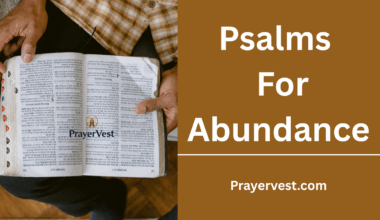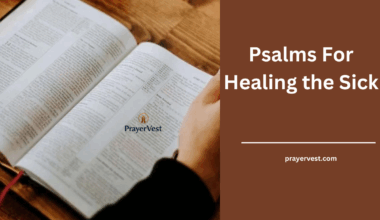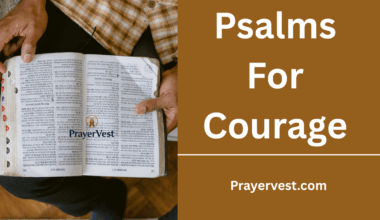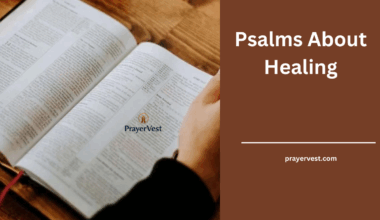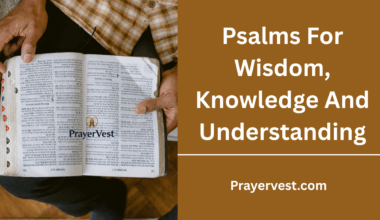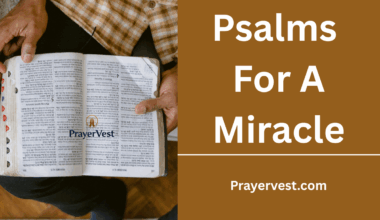In today’s chaotic and fast-paced world, many of us find ourselves constantly searching for peace—peace from stress, anxiety, the noise of social media, political unrest, personal trials, and mental exhaustion. The mind is often overwhelmed, the heart is burdened, and the soul longs for stillness. Yet in the middle of this whirlwind, Scripture invites us into a different reality—God’s peace.
The Book of Psalms, often called the songbook of the Bible, offers a powerful collection of prayers, praises, laments, and affirmations that span the full spectrum of human emotion. In these sacred poems, we discover peace that transcends understanding—a divine rest that calms even the most troubled spirit. The Psalms speak to our deepest needs and reflect the comfort of a God who listens, heals, and restores.
Biblical peace, or “shalom” in Hebrew, is more than the absence of conflict. It represents wholeness, harmony, completeness, and well-being. God doesn’t just want to give us moments of relief; He wants to anchor us in a continual state of calm through His presence.
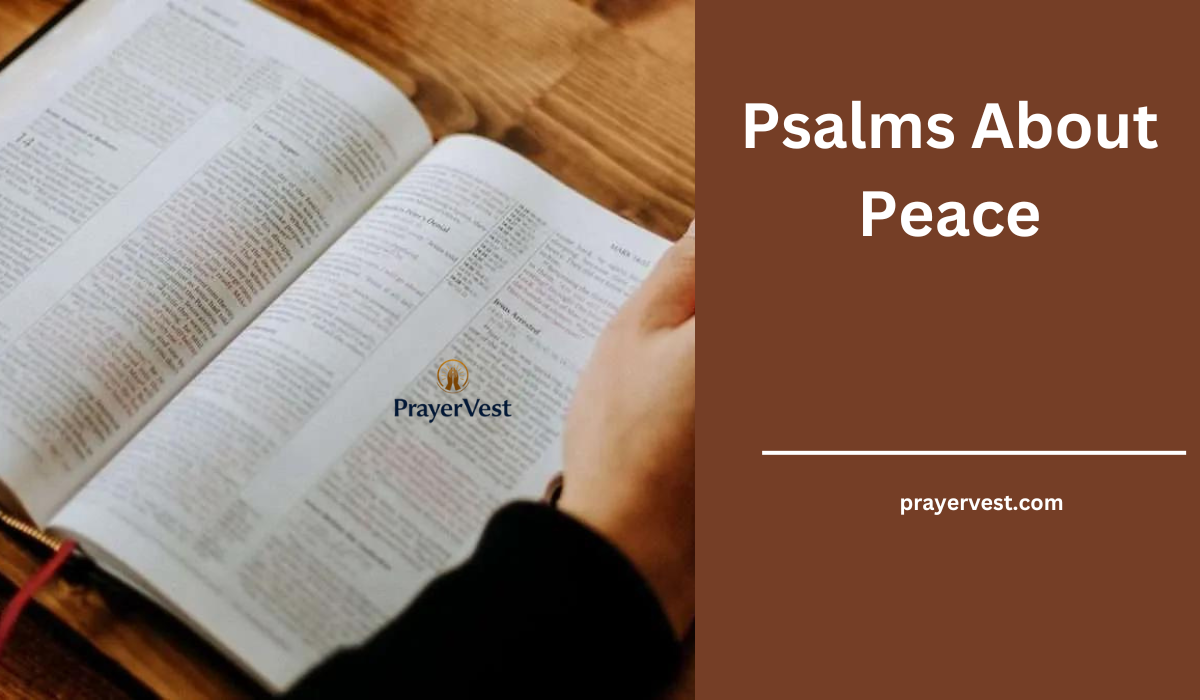

Whether you’re struggling with fear, burdened by guilt, or navigating a stormy season, these Psalms will gently lead you to a refuge of spiritual rest.
Below are 25 powerful Psalms that highlight God’s promise of peace. Each one includes a detailed description of the passage, its spiritual context, and a heartfelt reflection to help you draw nearer to the Prince of Peace.
25 Comforting Psalms About Peace to Calm Your Mind 2026
1. Psalm 4:8
“In peace I will lie down and sleep, for you alone, Lord, make me dwell in safety.”
This verse, part of a prayer for relief from distress, is a declaration of trust. David proclaims that despite the surrounding trouble, he can rest peacefully because of God’s protection.
Reflection: True peace allows you to sleep soundly even when circumstances are uncertain. When your heart is anchored in God’s safety, worry gives way to rest. This Psalm is a reminder that God watches over us, even when we let go and sleep.
2. Psalm 23:1–3
“The Lord is my shepherd; I shall not want. He maketh me to lie down in green pastures: he leadeth me beside the still waters. He restoreth my soul…”
This beloved passage compares God to a tender shepherd who leads His sheep to quietness and abundance. The imagery of green pastures and still waters represents perfect tranquility.
Reflection: The Psalm invites you to release the need to control and follow the gentle lead of God. His peace doesn’t depend on your environment, but on your relationship with Him. In His care, your soul finds rest and renewal.
3. Psalm 29:11
“The Lord gives strength to his people; the Lord blesses his people with peace.”
Psalm 29 is a majestic psalm that extols the power and authority of the voice of the Lord. Thunderous and awe-inspiring, His voice echoes over the waters, breaks cedars, shakes the wilderness, and displays divine glory. After this vivid depiction of God’s power, the Psalm concludes on a note of comfort and blessing—God imparts His strength and grants His people peace.
Reflection: There is great comfort in knowing that the same God whose voice thunders through the heavens also whispers peace into our hearts. His peace is not fragile or fleeting—it is anchored in divine strength. Even in moments when life feels chaotic and overwhelming, God’s presence stabilizes and fortifies us. This verse is a promise that His peace is not just the absence of trouble, but a powerful gift that equips and strengthens His children from within.
4. Psalm 34:14
“Turn from evil and do good; seek peace and pursue it.”
This verse forms part of a wisdom psalm that teaches the fear of the Lord. It encourages a deliberate and active pursuit of godliness. It calls not only for turning away from evil, but also for the intentional act of seeking peace and running after it.
Reflection: Peace doesn’t come by default—it must be cultivated. It involves aligning your life with God’s principles and becoming an agent of harmony in a broken world. When you resist the urge to retaliate, hold grudges, or stir up conflict, and instead choose goodness and grace, peace becomes your portion. This verse calls you to pursue peace as a lifestyle—through your words, your actions, and your prayers.
5. Psalm 37:11
“But the meek will inherit the land and enjoy peace and prosperity.”
This Psalm draws a contrast between the destiny of the wicked and the reward of the righteous. Verse 11 highlights the blessing reserved for the meek—those who are humble, patient, and surrendered to God’s will. These individuals are promised a rich inheritance, including peace and well-being.
Reflection: In a world that often glorifies pride, aggression, and dominance, God values meekness. Peace belongs to those who choose gentleness over rage, humility over arrogance, and trust over striving. This passage reassures you that your quiet obedience and humble faith will be honored. The reward is not just future blessings but present peace—a calm soul anchored in God’s unfailing goodness.
6. Psalm 46:10
“He says, ‘Be still, and know that I am God; I will be exalted among the nations, I will be exalted in the earth.'”
In the midst of a psalm describing upheaval—mountains falling, waters roaring, and nations in turmoil—God speaks with commanding calmness. He tells His people to “be still,” reminding them of His sovereign presence and ultimate authority.
Reflection: Sometimes the greatest act of faith is stillness. In the noise of life’s chaos, God invites you to pause and acknowledge who He is. Knowing God deeply brings peace in the storm. This verse is an anchor for your soul, reminding you that even when the world shakes, God remains in control, worthy of all praise.
7. Psalm 55:22
“Cast your cares on the Lord and he will sustain you; he will never let the righteous be shaken.”
This verse comes from a psalm of lament where David cries out to God in anguish and fear. Despite his emotional turmoil, he shifts into faith by encouraging others to place their burdens onto God, with the assurance that the Lord will uphold them.
Reflection: Carrying your anxieties alone can be overwhelming. This Psalm teaches that peace is found not by bottling your stress, but by giving it to God. When you cast your cares on Him, you open the door to divine support and unshakeable stability. It’s a daily invitation to let go and let God.
8. Psalm 56:3
“When I am afraid, I put my trust in you.”
This short yet profound verse comes from a psalm written by David when he was seized by the Philistines in Gath. It is a raw and honest expression of fear. David doesn’t pretend to be fearless; instead, he acknowledges his anxiety and reveals his response—he puts his trust in God. The psalm itself is full of tension, but this verse stands out as a moment of spiritual clarity in the midst of emotional chaos. It captures a powerful spiritual discipline: replacing fear with trust in the Lord.
Reflection: Fear is a natural response to uncertain or threatening situations. Whether it’s fear of the future, fear of failure, fear for loved ones, or fear of rejection, we all encounter moments that shake us. But Psalm 56:3 reminds us that faith is not the absence of fear—it’s choosing where to place that fear. When we respond to anxiety by trusting in God’s character, His faithfulness becomes our shield. This verse teaches us to actively redirect our thoughts and place our emotional burdens into God’s hands, where true peace begins to take root. You don’t have to wait for the fear to disappear before you trust—trust is what disarms the fear.
9. Psalm 62:1
“Truly my soul finds rest in God; my salvation comes from him.”
Psalm 62 is a reflective psalm written by David during a time of waiting and uncertainty. The opening verse is a declaration of quiet confidence. The Hebrew word used here for “rest” can also be translated as “silence” or “stillness.” David isn’t just saying that God gives him peace; he’s saying that in God’s presence, his soul becomes still. It stops striving. It stops fearing. It stops running. His security and salvation are not based on circumstances or people but on God alone.
Reflection: We often seek rest in vacations, entertainment, relationships, or even distractions—but these only offer temporary relief. This Psalm points to the kind of peace that saturates the soul and silences its unrest. Real peace is found in God alone, not in what He gives, but in who He is. When your soul finds rest in God, you are no longer held captive by fear or the demands of the world. You can breathe, be still, and live from a place of calm confidence, knowing that your salvation and security are eternally anchored.
10. Psalm 85:8
“I will listen to what God the Lord says; he promises peace to his people, his faithful servants—but let them not turn to folly.”
Psalm 85 is a communal prayer for restoration and revival. After acknowledging God’s past mercies, the psalmist prepares to hear God’s response. The verse captures a moment of holy anticipation—of tuning the ear to the voice of the Lord. It carries a two-fold message: God promises peace to those who are faithful, but there’s also a warning not to return to foolish behavior. Peace, therefore, is not automatic; it is conditional upon the listener’s obedience and sensitivity to God’s instruction.
Reflection: Peace comes when we learn to listen—truly listen—to God’s voice through prayer, Scripture, and the quiet leading of the Holy Spirit. Many people seek peace but remain in turmoil because they aren’t attuned to what God is saying. This verse reminds us that divine peace flows through relationship and obedience. It’s not a vague feeling; it’s the fruit of intentional spiritual living. If you’re not experiencing peace, pause and ask: Am I listening? Am I following His wisdom, or clinging to my own? God’s promise stands—but it requires our willingness to walk in His ways.
11. Psalm 91:1
“Whoever dwells in the shelter of the Most High will rest in the shadow of the Almighty.”
Psalm 91 is a majestic psalm of protection, often quoted during times of fear, danger, or uncertainty. Verse 1 sets the tone by describing a deep, abiding relationship with God. “Dwelling” in the shelter of the Most High suggests continual fellowship—not an occasional visit, but a lifestyle of spiritual intimacy. The result of this nearness? Rest—deep, soul-level rest—under the shadow of the Almighty, a symbol of divine refuge and protective covering.
Reflection: Peace is not a place; it’s a presence. The shadow of the Almighty represents the nearness of God—a safe space where fear loses its power. When you consistently dwell in God’s presence through prayer, worship, and Scripture, you live under His covering. It doesn’t mean life will be free of trouble, but it does mean that trouble will never have the final word. When God is your shelter, rest is your inheritance. Your peace won’t depend on external calm but on internal trust in the One who holds all things.
12. Psalm 94:19
“When anxiety was great within me, your consolation brought me joy.”
This verse offers a tender insight into the emotional life of the psalmist. It acknowledges the reality of overwhelming anxiety—“great within me”—and highlights the divine remedy: God’s consolation. The Hebrew word for “consolation” implies comfort, encouragement, and even cheer. Remarkably, this comfort doesn’t just ease the anxiety—it transforms it into joy.
Reflection: God doesn’t just want to numb your pain; He wants to renew your heart. When you invite Him into your anxious thoughts, His comfort acts like light breaking into darkness. It changes your perspective and fills your heart with a joy that doesn’t make logical sense in the middle of your struggle. This verse encourages you to be honest about your anxiety and to bring it to the One who doesn’t shame your feelings but meets them with divine comfort. When you give Him your heaviness, He exchanges it for joy.
13. Psalm 119:165
“Great peace have those who love your law, and nothing can make them stumble.”
Psalm 119 is the longest chapter in the Bible and is entirely dedicated to celebrating God’s Word. Verse 165 draws a direct connection between peace and a love for God’s commandments. The word “great” here emphasizes abundance—it’s not just any peace, but a profound, unshakable peace. This peace is promised to those who don’t merely follow God’s Word out of duty but delight in it. The result? Stability. They are not easily swayed or shaken.
Reflection: In a world full of shifting values and moral confusion, God’s Word provides a steady foundation. When you anchor your life in Scripture, you develop spiritual muscle memory—habits of trust, wisdom, and faith that naturally lead to peace. Loving the law of God means more than just reading it; it means cherishing it, applying it, and letting it shape your decisions. The result is an inner calm that no external chaos can disturb. If your peace feels fragile, return to the Word and let it restore your footing.
14. Psalm 121:1–2
“I lift up my eyes to the mountains—where does my help come from? My help comes from the Lord, the Maker of heaven and earth.”
This passage is from a Song of Ascents—pilgrim psalms sung as worshipers journeyed to Jerusalem. The psalmist lifts his eyes to the hills, possibly viewing them as a place of danger (where bandits might hide) or perhaps as a metaphor for the challenges ahead. The question is rhetorical and quickly answered with conviction: true help doesn’t come from creation but from the Creator—the One who made the heavens and the earth.
Reflection: When life feels overwhelming, our natural instinct is to look around us for help—people, plans, power. But this psalm invites us to look higher, to look up. Peace begins not when the journey gets easier but when we remember who walks with us. The God who made the heavens is not distant—He is your helper, watching every step. This knowledge doesn’t remove hardship but brings a deep reassurance that you are never alone, and no need is beyond His provision.
15. Psalm 125:1 (NIV)
“Those who trust in the Lord are like Mount Zion, which cannot be shaken but endures forever.”
Mount Zion, a symbol of God’s presence and permanence, represents unshakable faith and divine stability. This psalm paints a picture of spiritual resilience. Trusting in God doesn’t mean life is free from storms—it means you have a foundation that holds firm regardless of what hits you. The “forever” in this verse emphasizes endurance, echoing God’s eternal nature.
Reflection: So many things in life can shake us—relationships, finances, health, uncertainty. But this verse promises that those who anchor their hearts in God won’t collapse under pressure. Like Mount Zion, you may bend, but you will not break. Peace comes from this rootedness—knowing you’re planted in something eternal. When you feel shaken, revisit your foundation. Trust isn’t a feeling; it’s a decision to stand firm in the One who cannot be moved.
16. Psalm 126:5
“Those who sow with tears will reap with songs of joy.”
This verse speaks of hope and renewal. Written after the return from Babylonian exile, Psalm 126 recalls the emotional journey of sorrow turning into joy. “Sowing with tears” symbolizes times of deep pain, effort, and grief. But this isn’t a hopeless sowing—it is purposeful. The promise is that those who weep in the present will one day rejoice at the harvest God brings.
Reflection: Peace doesn’t always look like a quiet mind—it can also look like hope in heartbreak. This verse assures you that your pain has purpose. God sees every tear, every quiet sacrifice, every unseen act of faith. And He promises a return—a joy that grows from the very soil of your sorrow. Your tears water the ground for a future harvest. Hold on. Peace comes not just in the promise of comfort, but in the certainty that God is working through your pain.
17. Psalm 127:2
“In vain you rise early and stay up late, toiling for food to eat—for he grants sleep to those he loves.”
This verse confronts the illusion of self-sufficiency. It critiques anxious striving—working tirelessly, driven by fear or ambition—without trusting God for provision. The word “vain” here means “pointless” or “futile.” The psalm contrasts this striving with the restful gift of sleep—a symbol of divine trust. God gives rest not just as a biological need but as a spiritual blessing.
Reflection: Many people chase peace through productivity. But this verse teaches that peace isn’t earned—it’s received. True rest, both physical and spiritual, comes from knowing your life is in God’s hands. Sleep becomes an act of faith: a statement that while you rest, God works. If you find yourself anxious or restless, ask yourself—am I trusting God, or trying to do it all myself? Peace is the posture of surrender. Lay your burdens down and let His love quiet your soul.
18. Psalm 128:2
“You will eat the fruit of your labor; blessings and prosperity will be yours.”
This verse is a declaration of God’s blessing over a righteous, God-fearing life. It emphasizes that peace isn’t just inward—it can be external and tangible, reflected in the simple joys of life: fruitful work, provision, and contentment. It’s not a promise of riches but of satisfaction and fulfillment.
Reflection: There’s deep peace in knowing your efforts are not in vain. God honors diligence, faithfulness, and integrity. When you walk in His ways, your life becomes fertile ground for blessing. This verse invites you to view your daily work as worship—not just toil for survival, but meaningful contribution under God’s provision. Peace grows when you live with purpose, and when you trust that your labor, done in faith, will bear fruit in due season.
19. Psalm 130:5
“I wait for the Lord, my whole being waits, and in his word I put my hope.”
This psalm is a heartfelt cry from the depths of despair. Verse 5 captures a soul in waiting—not passive waiting, but an active, faith-filled expectancy. The phrase “my whole being waits” shows total engagement. The psalmist’s hope is not in changing circumstances but in God’s Word—His promises and truth.
Reflection: Waiting can be one of the hardest tests of faith. But this verse turns waiting into worship. When peace feels distant, and prayers seem unanswered, this verse teaches us to wait with hope, not despair. God’s Word becomes our anchor during the delay. Trust that His timing is perfect, even when it’s not immediate. Peace flourishes when we choose to hope in His promises, believing that what He has spoken, He will fulfill.
20. Psalm 131:2
“But I have calmed and quieted myself, I am like a weaned child with its mother; like a weaned child I am content.”
This psalm is a picture of soul-level serenity. The psalmist compares his spirit to a weaned child—no longer restless or demanding, but content in the presence of the mother. This imagery captures a maturing trust, where peace doesn’t depend on what God gives, but simply on being with Him. It’s an intentional calming of the soul—a learned quietness.
Reflection:
Spiritual peace often comes not from getting what we want, but from letting go of what we thought we needed. Like a child who no longer cries for milk but finds peace just being held, we learn to rest in God’s presence. This verse is an invitation to spiritual maturity—where your contentment isn’t based on outcomes but on relationship. Quiet your heart, release your demands, and find peace just being near to Him.
21. Psalm 138:7
“Though I walk in the midst of trouble, you preserve my life. You stretch out your hand against the anger of my foes; with your right hand you save me.”
Here David praises God for divine protection even in the heart of conflict. This verse acknowledges the reality of danger—he is walking in the midst of trouble—but emphasizes God’s active intervention. The image of God stretching out His hand is powerful and personal. It speaks of a God who doesn’t remain distant, but steps into the fray on your behalf.
Reflection: Peace doesn’t mean an absence of trouble. It means presence—God’s presence—right in the middle of the battle. When you feel surrounded or targeted, remember: you are not helpless. God’s hand defends, protects, and preserves. This verse gives you permission to admit the struggle while clinging to divine deliverance. Peace is found in knowing who fights for you—and that He never loses.
22. Psalm 139:23–24
“Search me, God, and know my heart; test me and know my anxious thoughts. See if there is any offensive way in me, and lead me in the way everlasting.”
This intimate and vulnerable prayer concludes a psalm about God’s omnipresence and intimate knowledge of us. The psalmist opens himself up to divine examination—not out of fear, but a desire for purification. He acknowledges that anxiety can distort our view of God and ourselves. Asking God to search his heart is a step toward healing and realignment.
Reflection: Real peace often begins with honesty. When anxiety clouds your soul, this prayer invites clarity. Let God shine His light on your inner world—not to condemn, but to heal. Ask Him to reveal what is not aligned with His truth, and to gently lead you back to the way of peace. Peace comes when you stop hiding and let God examine, refine, and restore you. Surrender opens the door to everlasting calm.
23. Psalm 23:4
“Even though I walk through the darkest valley,
I will fear no evil,
for you are with me;
your rod and your staff,
they comfort me.”
This iconic verse shifts the tone of Psalm 23 from restfulness to reassurance in adversity. The “darkest valley”—often translated as “valley of the shadow of death”—is symbolic of life’s most terrifying, uncertain, or sorrowful moments. Yet, even in this place, the psalmist declares a bold refusal to fear. The reason is not the absence of danger, but the presence of God. The “rod” and “staff” were tools a shepherd used to protect and guide his sheep—metaphors for divine discipline, correction, and security.
Reflection: Peace in the valley is one of the deepest forms of trust. It’s knowing that even when life grows dark and you can’t see the way ahead, you are not walking alone. God’s nearness is your comfort. His rod pushes away enemies; His staff nudges you back when you stray. This verse teaches that peace is not the absence of valleys, but the assurance of God’s faithful companionship within them. No shadow can overcome the light of His presence.
24. Psalm 27:1
“The Lord is my light and my salvation—whom shall I fear?
The Lord is the stronghold of my life—of whom shall I be afraid?”
Psalm 27 is a declaration of confident trust. David, likely surrounded by enemies or opposition, begins with a profound question rooted in unshakable faith. God is his “light” (guidance and truth), his “salvation” (rescue and deliverance), and his “stronghold” (a fortified place of safety). These metaphors convey power, protection, and the absence of any legitimate reason to fear.
Reflection: When fear creeps in, this verse is a shield. It invites you to lift your eyes above the threats and behold the strength of your God. He is not distant or passive—He is light in your darkness, salvation in your struggle, and a fortress around your fragile heart. True peace is birthed when you shift your focus from what threatens you to the One who defends you. This verse is a courageous song of peace that silences anxiety through faith.
25. Psalm 131:2
“But I have calmed and quieted myself,
I am like a weaned child with its mother;
like a weaned child I am content.”
This short, deeply personal psalm reflects a soul that has found peace not through striving, but through surrender. The image of a “weaned child” resting with its mother speaks of mature trust—no longer demanding milk, but finding comfort in presence alone. The psalmist has chosen stillness, rejecting pride, ambition, and the need to understand everything. Instead, he embraces simplicity and trust.
Reflection: In a noisy, restless world, this verse is a sacred invitation to quietness. It teaches that peace is a posture of the heart. Like a child leaning into a parent’s embrace, peace comes when we stop demanding answers and start enjoying God’s presence. This kind of peace is not loud or flashy—it’s gentle, intimate, and unshakable. When your soul is calmed in God like a child in its mother’s arms, you’ve found the deepest form of peace.
Conclusion: Resting in God’s Peace
The Psalms are more than ancient poetry—they are living waters for thirsty souls, guiding us into the presence of the One who offers true, lasting peace. In a world where anxiety, fear, and unrest constantly battle for our attention, these scriptures remind us that peace is not the absence of problems, but the presence of God.
Biblical peace—shalom—is not temporary or superficial. It is whole, holy, and deeply rooted in the character of God. Whether you’re walking through a storm, standing in a valley, or simply longing for stillness, God’s peace is available. It is found in trust, obedience, surrender, and worship.
Let these 25 Psalms be your spiritual anchor. Meditate on them. Pray through them. Write them on your heart. As you do, may the Prince of Peace calm every storm within you, fill your life with quiet strength, and guide your soul into sacred stillness.
“Now may the Lord of peace himself give you peace at all times and in every way.”
— 2 Thessalonians 3:16

